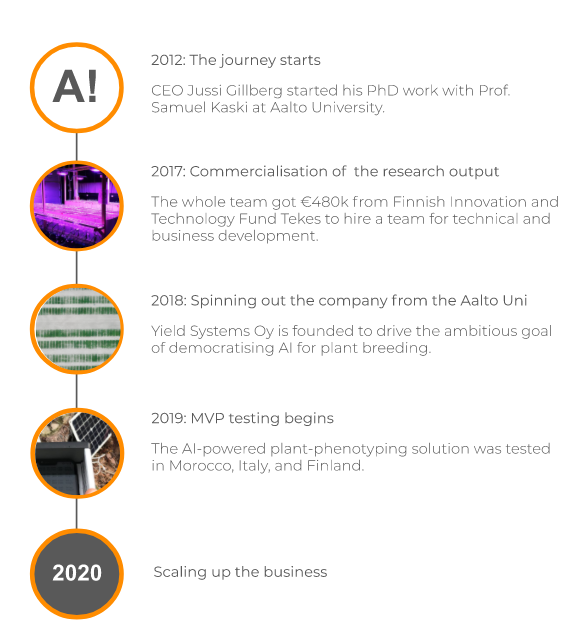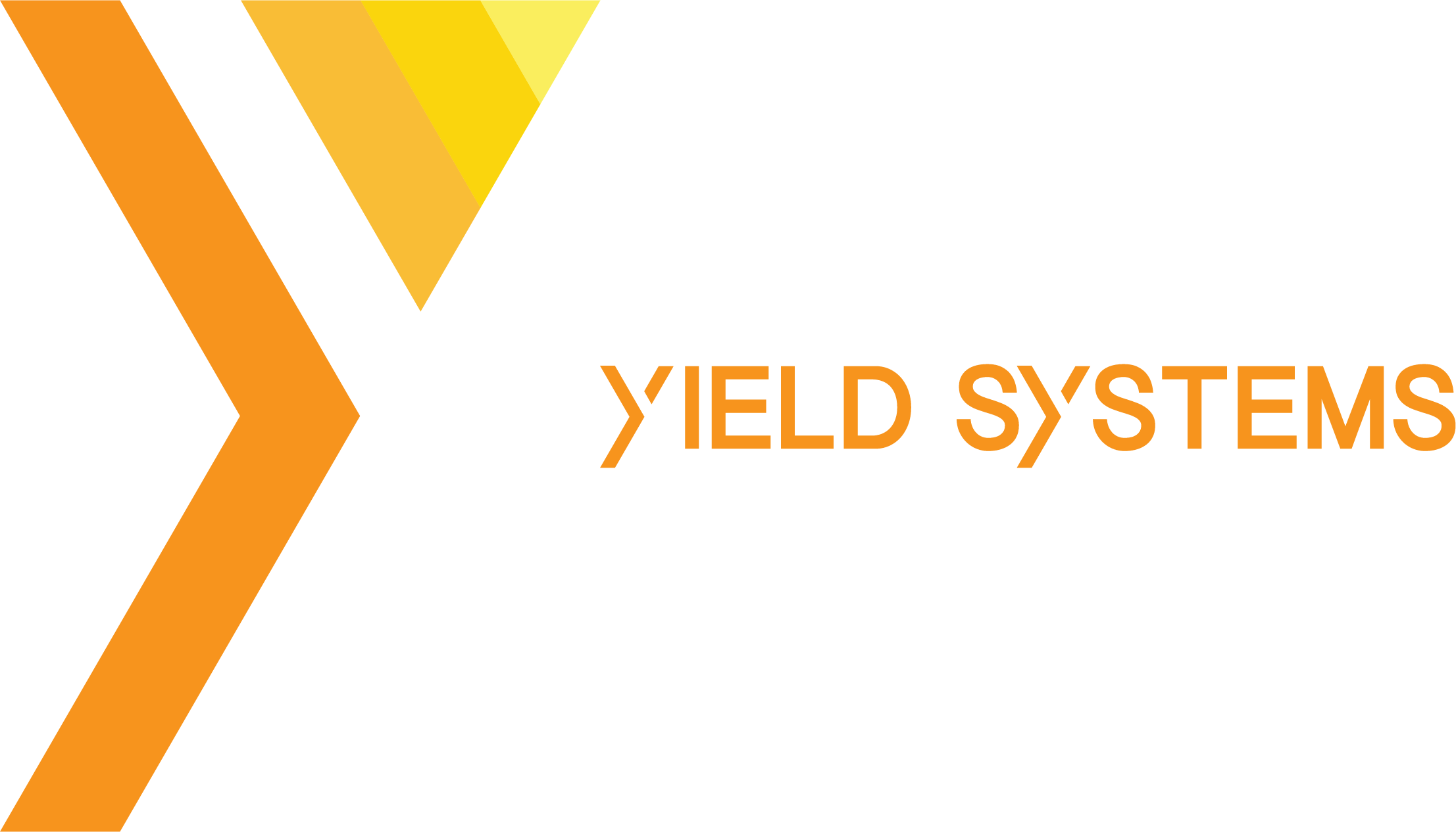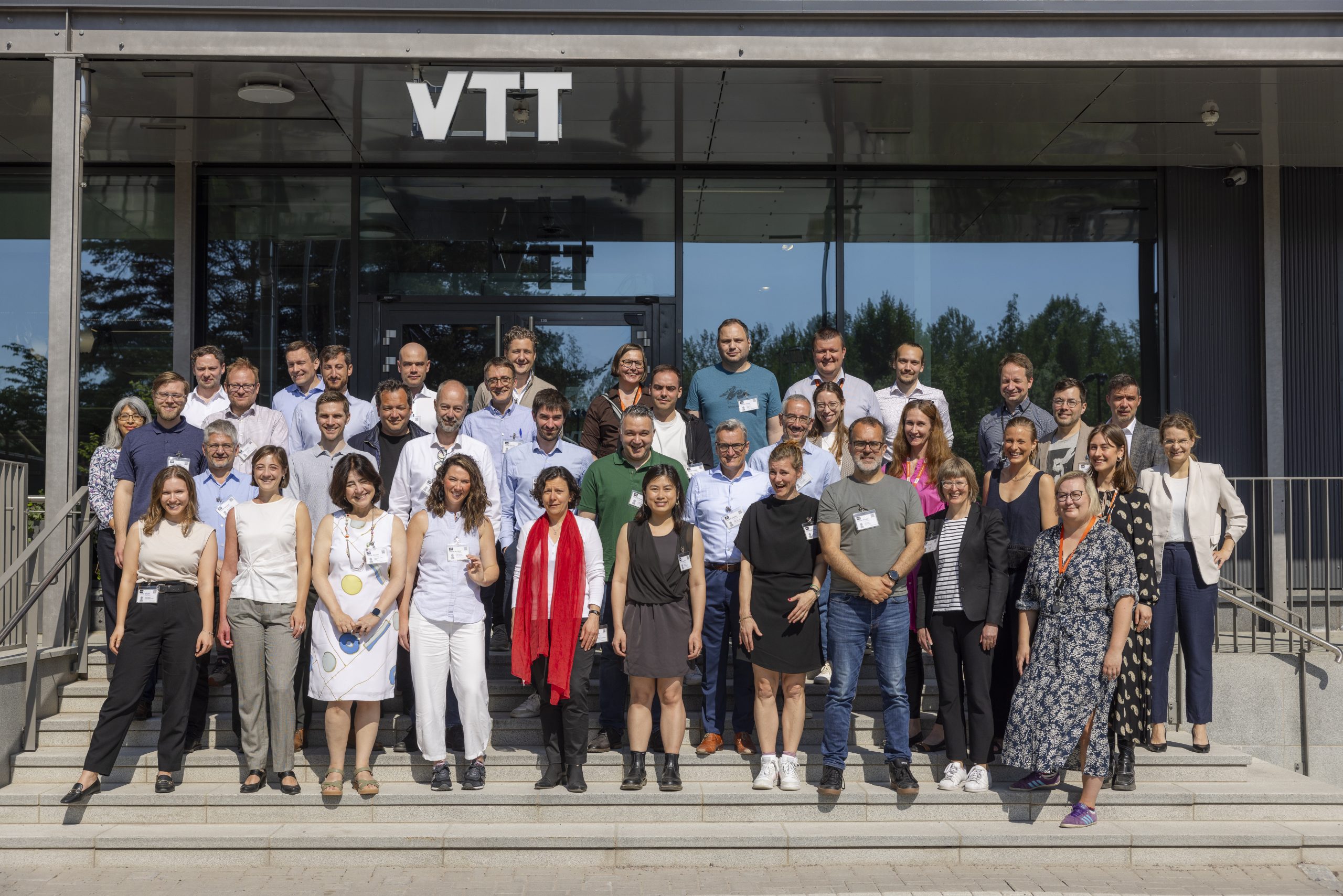
Cover image: Spikes in the eyes of the algorithm.
Due to the growing population and changing eating habits, 60% more food is needed by 2050 without increasing fertilizer and other input use. Climate change also increases extreme weather conditions and risk of losing harvests globally. Every person on the planet will experience these problems through food price fluctuations. Plant breeding is one of the key elements in addressing these issues. The challenge is that plant breeding gains have stagnated at 1.5% annually. We should get 2.5% gains to keep up with population growth.
The current bottleneck in plant breeding and digital agriculture is the quantity and quality of the available phenotype data (measuring agronomic and biological traits of plants). New low-cost technologies are needed to improve data production in the plant breeding process and also to harness benefits of modern machine learning in crop production. High quality data and efficient data production are the most important elements to enable use of artificial intelligence in plant breeding. Therefore, Yield Systems is focused on accurate and low-cost data production with machine vision.

Our journey from idea to growing startup.
We automate phenotyping field tasks that earlier required human work and improve the resolution of observations by analysing every millimeter of each trial plot. In the long term, our objective is that our customers will always have access to best possible phenotype observations for new and old field experiments. We use artificial intelligence to automate observation work while data collection is done with a smartphone, enabling also use by farmers in the future. Data can be collected by non-experts from remote trials which makes process easier for wide-scale data collection.
Our solution is based on recording high-resolution videos from field trials with full visibility to all above-ground traits in plants. Videos are automatically processed into human-interpretable counts and measurements with our video intelligence. Traits that can be analysed from videos include e.g. the number of spikes, height, number of seeds/spike, disease symptoms, biomass and their distributions. Videos are stored in a field trial archive. As new traits become interesting, also older trial data can be analysed for the new traits (digital twin of trial plots).
What is unique in our solution?
Our unique technology is video intelligence based on synthetic data. Our machine vision algorithms are trained in virtual reality which has several key benefits.
Synthetic data helps reduce the R&D cycle. Product development cycle for agri-tech is season-dependent (cycle of 1 year or 6 months even with global testing facilities). With synthetic data, the cycle may be shortened to a few days -> 5-10 times product development speed.
Synthetic data helps improve data quality and quantity. Producing training data sets comprising 1000-10000 annotated images is expensive, can take weeks or months, and data quality is often not sufficient. With our automated synthetic data production pipeline, data sets with millions of accurately annotated images can be generated overnight.
Finally, synthetic data helps cover use scenarios much better. Lighting conditions affect machine vision heavily but collecting and annotating data from all possible lighting conditions can be impossible. With synthetic data, the differing lighting conditions may be simulated fully.

Yield System team: Jussi Gillberg (CEO), Harri Juntunen (Business Development) and Linh Nguyen (CTO).
Where are we now and what next?
At the moment we are finalizing the data collection during this growing season. With the help of our pilot customer and partners globally, we managed to get data collected, despite COVID-19 related challenges. We are now analysing the results and planning the next steps together to improve and add new capabilities to our offering.
We also performed experiments to evaluate the integration of satellite data with our highly accurate field level measurements. During the summer we also participated in experiments which aim at estimating carbon sequestration and this seems to be a great opportunity for us. Customer projects where we use our synthetic data pipeline for applications in other industries are also developing. It’s going to be a busy autumn!
And last, but not least, we got approved in the EIT FAN program! EIT FAN has been an inspiring experience for us. We have gained a lot of understanding about the food value chain, funding, scaling business internationally from expert sessions and mentoring. Of course, it is always great to have other start-ups to discuss their situation and plans. It is really inspiring to hear how innovative solutions are in the works to solve our common challenges in the global food systems. We hope that we can meet everyone face-to-face finally on Demo Day!
Written by Harri Juntunen, Business Developer at Yield Systems.
To learn more about Yield Systems and the EIT FAN Helsinki program, visit Yield Systems and https://www.eitfan.eu/helsinki.




